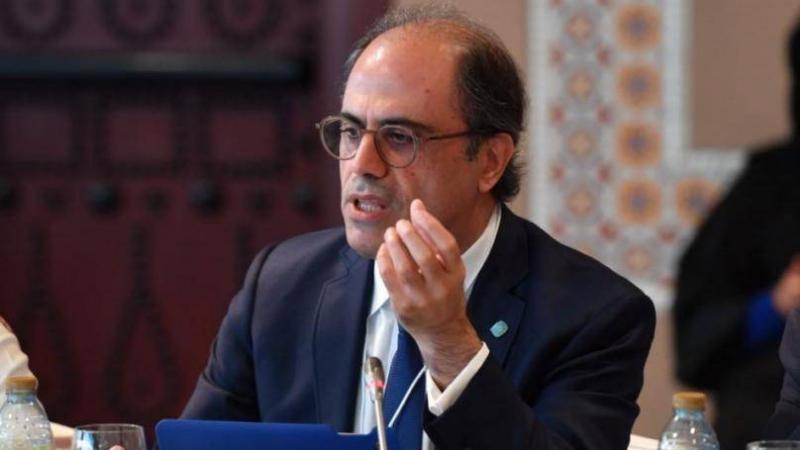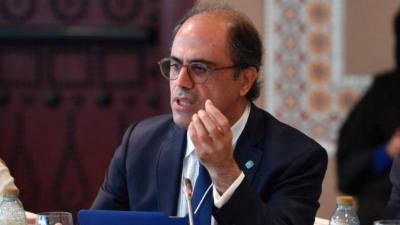Lebanon was present with its various issues in the French-Saudi discussions. In the concluding statement from the meeting between French President Emmanuel Macron and Saudi Crown Prince Mohammed bin Salman, both parties confirmed their "support for Lebanon's sovereignty, security, and stability, and the importance of implementing comprehensive political and economic reforms."
The French-Saudi meeting maintained the same stance, focusing on several points that Saudi Arabia insists on during discussions with the French, particularly concerning the implementation of international resolutions, the Taif Agreement, enhancing Lebanese-Arab relations, and restricting weapons possession to the state. All these files were discussed, along with the presidential elections.
International powers are showing interest in the presidential election, but they remain cautious, waiting for Lebanon to enter the constitutional timeframe for electing a president. The Saudi and French sides reviewed the presidential election from various perspectives, linking the choice of the new president with the new government, meaning a new Lebanese era would be inaugurated. This must be based on achieving some progress in other issues, such as the agreement with the International Monetary Fund, executing extensive economic and financial reforms, and distancing Lebanon from axis politics. This requires a forthcoming Iranian position. Some are betting on the renewal of Iranian-Saudi negotiations in Baghdad and an impending meeting between the foreign ministers of both countries. There is also Paris's endeavor with Tehran to revive nuclear negotiations.
According to diplomatic sources, Paris is continuing its efforts to prevent any tension or escalation in positions. It conveys positive atmospheres surrounding border demarcation and the readiness of the French company Total to commence oil exploration in Lebanon after finalizing the demarcation. These issues were present during a two-hour phone call between President Emmanuel Macron and Iranian President Ebrahim Raisi.
Diplomatic sources indicate that there are attempts to seek out candidates and review their CVs for the presidency in the upcoming phase. According to the sources, the chances for first-tier figures to reach the presidency are diminishing due to Lebanon's need for a consensus president who has no problem with any political forces and is capable of gaining international trust.
**Three Possibilities**
Lebanon faces three possibilities: regional and international rapprochement leading to consensus on a compromise figure; a lack of direct and detailed regional and international interest in agreeing on the president and the next phase; or continued status quo, which threatens to create a vacuum alongside ongoing collapse and various internal problems, while waiting for the right moment. Here, sources emphasize that the upcoming phase is governed by a settlement.
In addition to these possibilities, there is another scenario, albeit with slim chances: the absence of foreign interest in the presidential issue and a lack of a converging perspective among regional and international powers might leave a margin for Lebanese actors to seek a president. Political forces are considering this possibility, and some believe that Sleiman Frangieh's chances are high in this case. In this context, sources mention a meeting between Frangieh and President Nabih Berri.
**Frangieh, Joseph Aoun, and Azour**
Notably, according to sources, Frangieh states in his circles that he is a consensus candidate and not a challenger to anyone. He does not want to come across in a confrontational manner to avoid having a weak term. He wants to avoid any confrontation with any party to not repeat the presidency of Michel Aoun.
In the search for a consensus president, various internal and external parties are reviewing several names. The army commander Joseph Aoun stands out, although he refuses to discuss this topic. On the other hand, there is another name that possesses the attributes required for this phase. In light of the search for a profile similar to that of former president Elias Sarkis, the name of former minister Jihad Azour emerges. He has experience in financial matters, having previously served as Minister of Finance, and currently holds the position of head of the International Monetary Fund in the Middle East region. Such a profile is needed by Lebanon to accomplish reforms and negotiate with the IMF.
Of course, there are those who oppose Azour for political reasons. However, he enjoys external trust and has held meetings both abroad and domestically. His ascension is linked to the possibility of achieving regional and international consensus that positively reflects on the Lebanese political scene.




